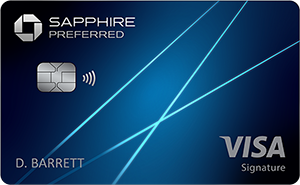Christine Krzyszton
Christine Krzyszton
Senior Finance Contributor
355 Published Articles
Countries Visited: 100U.S. States Visited: 45
Christine ran her own business developing and managing insurance and financial services offices. This stoked a passion for points and miles and she now has over 2 dozen credit cards and creates in-dep...
Edited by: Jessica Merritt
Jessica Merritt
Senior Editor & Content Contributor
179 Published Articles 771 Edited Articles
Countries Visited: 4U.S. States Visited: 23
A long-time points and miles student, Jessica is the former Personal Finance Managing Editor at U.S. News and World Report and is passionate about helping consumers fund their travels for as little ca...
& Juan Ruiz
Juan Ruiz
Senior Editor & Content Contributor
428 Published Articles 1068 Edited Articles
Countries Visited: 49U.S. States Visited: 32
Juan has extensive experience in writing and editing content related to credit cards, loyalty programs, and travel. He has been honing his expertise in this field for over a decade. His work has been ...
![Full List of Travel Insurance Benefits for the Chase Sapphire Preferred Card [2025]](https://upgradedpoints.com/wp-content/uploads/2019/07/Chase-Sapphire-Preferred-Upgraded-Points-LLC-07-Large.jpg?auto=webp&disable=upscale&width=1200)






![Chase Sapphire Preferred Card – Full Review [2025]](https://upgradedpoints.com/wp-content/uploads/2020/09/sapphire-preferred.png?auto=webp&disable=upscale&width=1200)
![Chase Sapphire Reserve Card – Full Review [2025]](https://upgradedpoints.com/wp-content/uploads/2025/06/Sapphire-Reserve.png?auto=webp&disable=upscale&width=1200)

![Chase Slate® Card — Full Review [2024]](https://upgradedpoints.com/wp-content/uploads/2018/03/Chase-Slate-Card.png?auto=webp&disable=upscale&width=1200)